10 costs you don’t even know about until you buy a home

When I bought my first house, I bawled my eyes out, but it wasn't because I was overjoyed, and it wasn't because I was terrified to be taking on a big mortgage.
Both of those things were true. But I cried for another reason entirely. Stamp duty. No-one had warned me about stamp duty.
I'd co-purchased a tiny, cheap apartment in regional Queensland with my boyfriend a few years earlier, and that experience maxed out my eligibility for any first homebuyer grants or concessions. So when I was ready to buy a much bigger and more expensive townhouse, stamp duty swindled me out of ALL of my life savings.
Finder research shows that first homebuyers are shocked to be hit with an average of $6,353 in unexpected costs when they buy a home.
To save you from learning about big, fat expenses of home-buying after it's too late, I've rounded them up:
1. Stamp duty
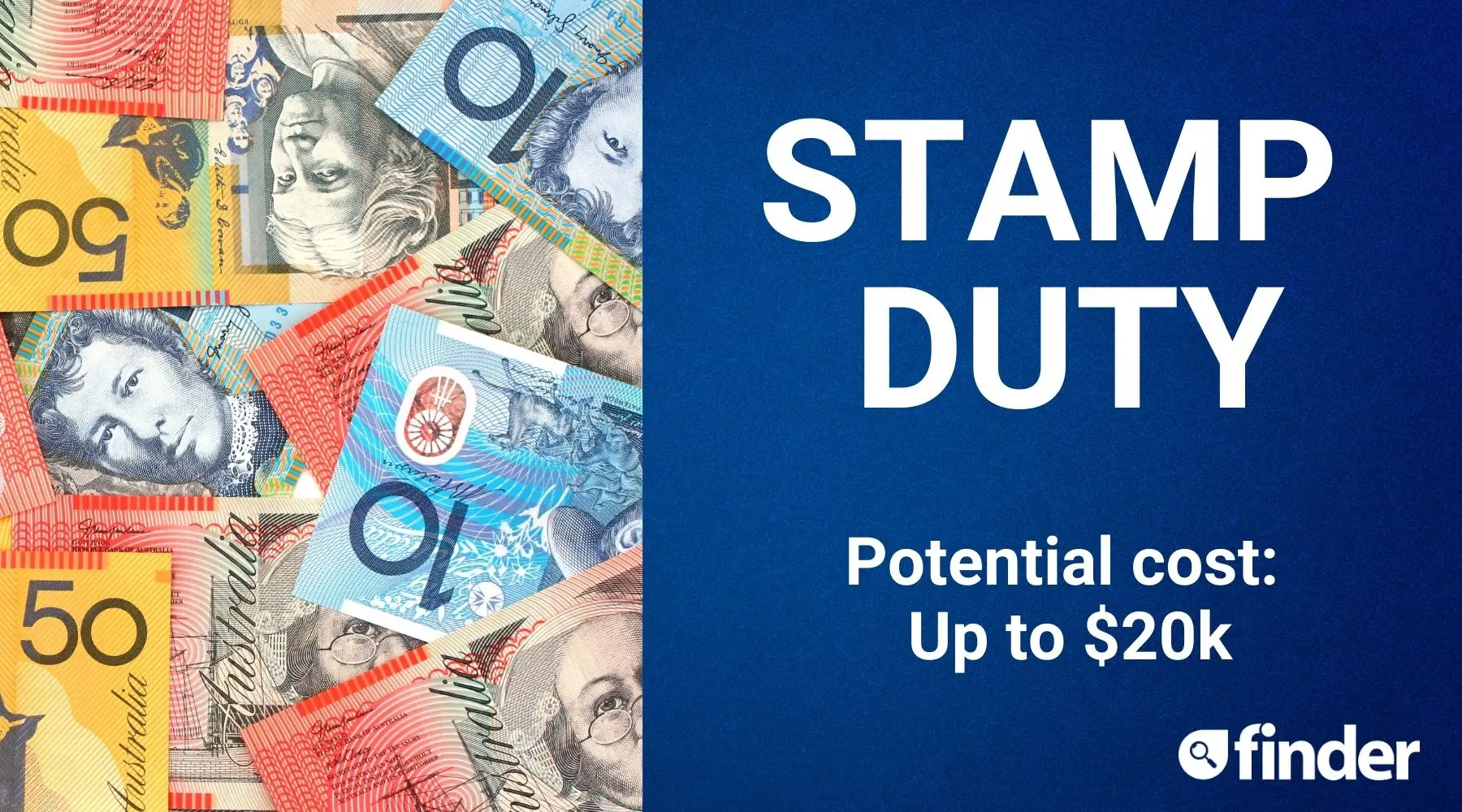
Stamp duty is the biggest source of income for most state and territory governments, and it costs you a pretty penny as a home buyer. As a first home buyer, you have access to discounts or exemptions. But there are criteria to meet, restrictions to be aware of and upper limits to the amount you can spend.
Do the research and find out exactly how much you're likely to be up for. Or you too could end up sobbing behind your sunglasses as you scurry down Foveaux Street towards the Commonwealth Bank, a cash cheque for $13,000 clasped firmly between your sweaty fingers, $13.54 left in your account, asking yourself: Am I doing the right thing?
- SPEND: Up to around $20,000, depending on the property's purchase price and location.
- READ: Our guide to stamp duty concessions and discounts.
2. Legal expenses
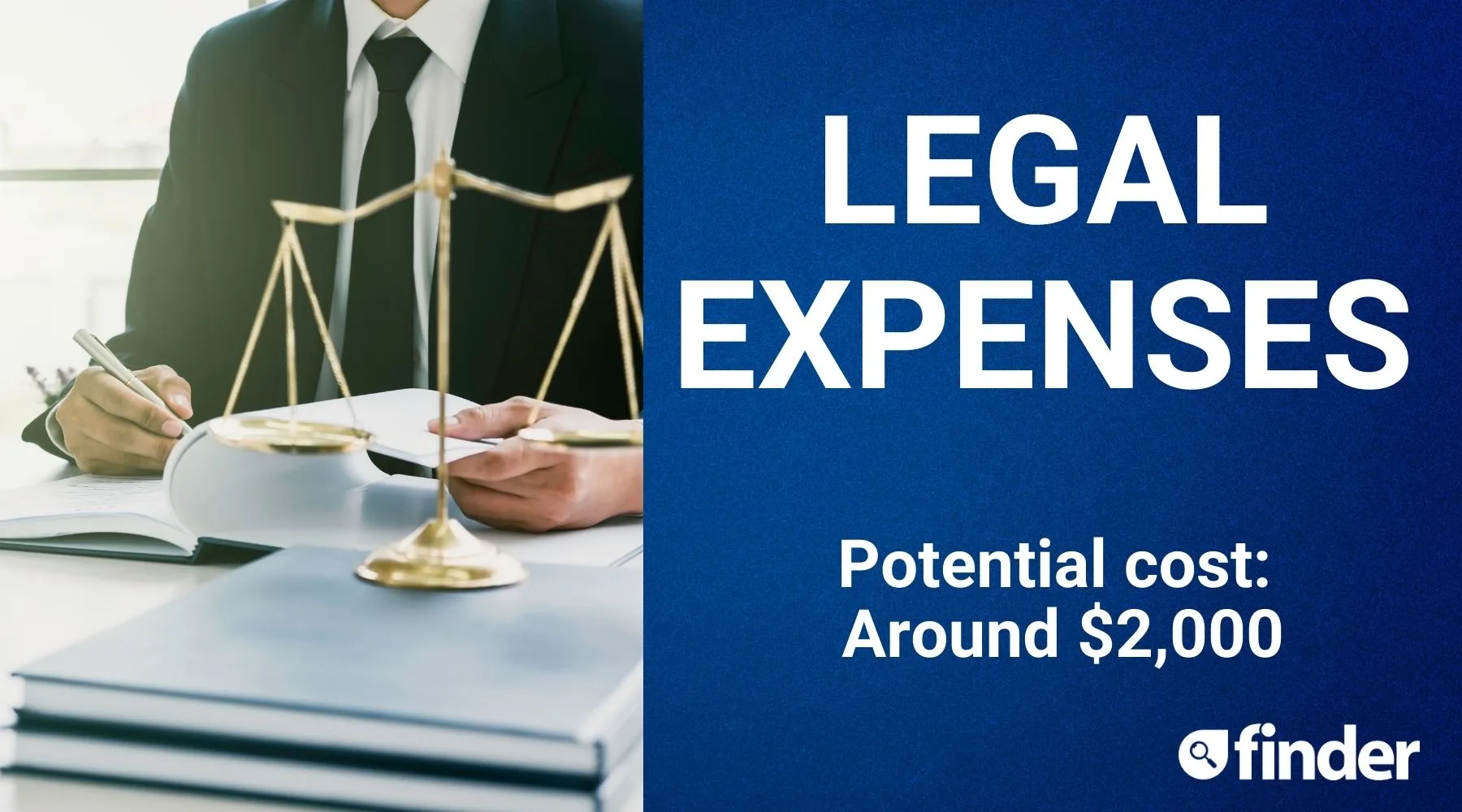
How much do you have to spend on legal fees when buying or selling a home, and is there any way to cut these costs?
"You'll spend somewhere in the vicinity of $2,000 to cover the professional fees of a property solicitor or conveyancer, including a standard suite of property searches," explains Simon Pressley, buyer's agent and head of research at Propertyology.
"From flood risks, to building approvals, underground utilities and easements, every property is different. Your conveyancer will do a 'search', and the search fee component will vary depending upon whether the buyer feels a need to investigate something specific about the property they want to buy."
- SPEND: $2,000, give or take.
- READ: About what a conveyancer does and how they help you.
3. Disbursements
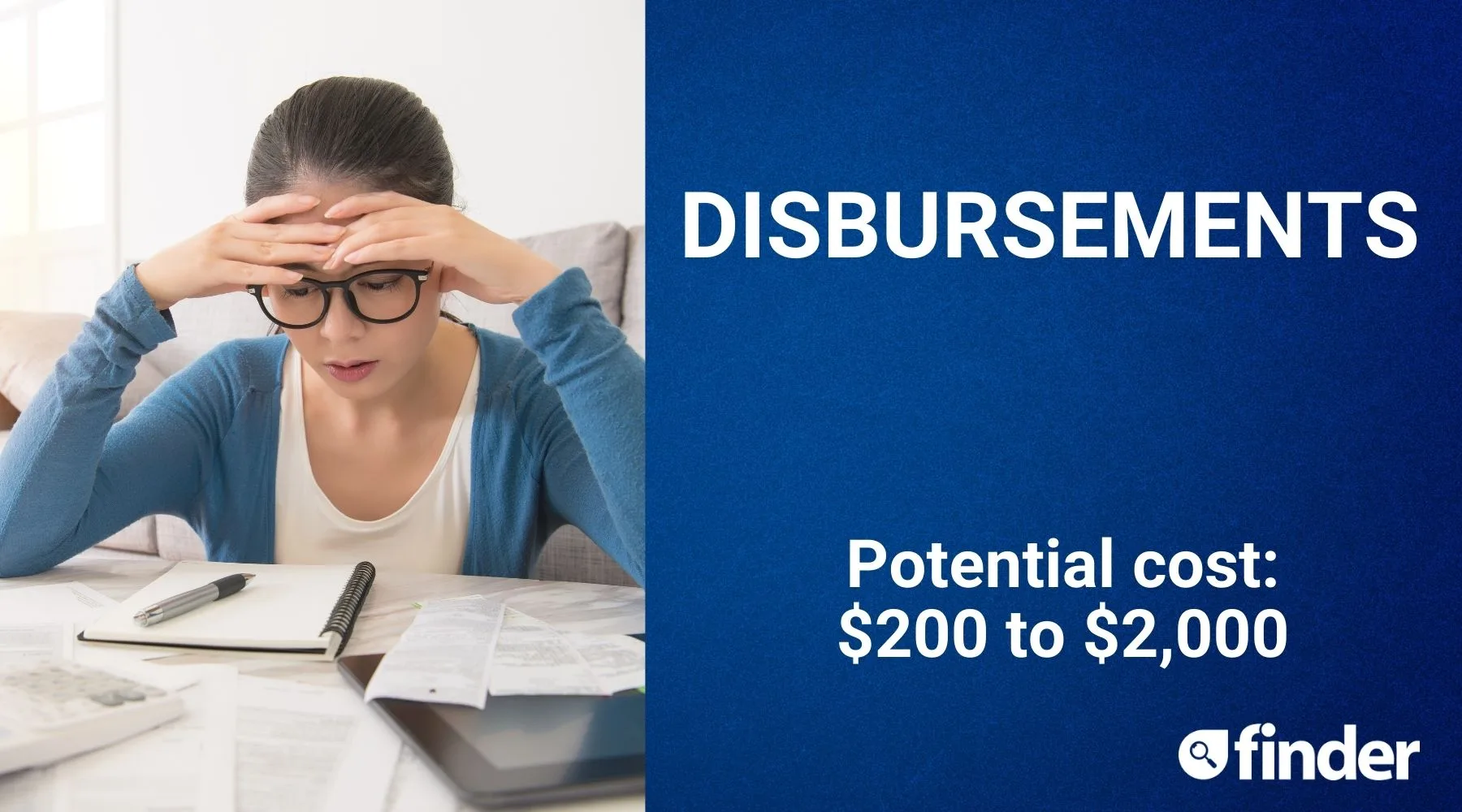
This is a fancy word that essentially means you have to pay for your share of the council rates, water supply and body corporate fees that the previous owner already paid.
Let's say you buy a home on 15 April. In February, the previous owner had paid for council rates that cover the property until 30 June. You now have to pay them for the portion of rates that covers 15 April - 30 June.
Don't worry, your conveyancer works this all out for you, and factors it into the settlement as "disbursements". But for many home buyers, it's a bit of a shock to find out you have to find another $500, $1,000 or even more at settlement time to cover these expenses.
- SPEND: Anywhere from $200 to $3,000, depending on how much has been prepaid in council rates, water rates and strata fees.
- READ: Get prepared and learn what happens on settlement day?
4. Building and pest inspection
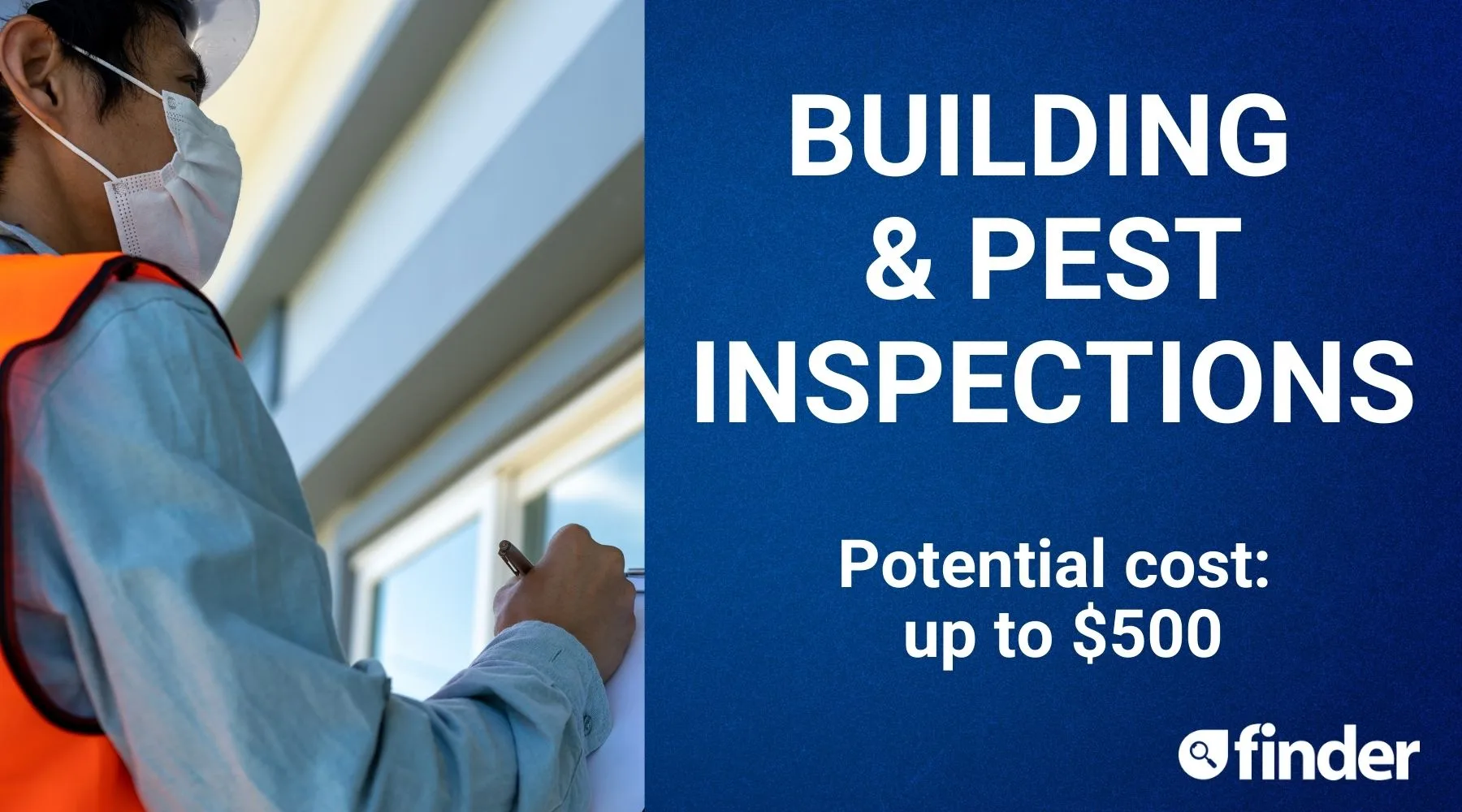
Simon Pressley, founder and managing director of Propertyology explains that an inspector will investigate and comment on structural issues, poor workmanship and other matters that are worth monitoring, along with things that could become big-ticket costs in years to come.
"My best guess is that only 1 in 30 properties that we buy have findings from building and pest inspections that justify pulling the pin on the property, but it's always invaluable for your piece of mind," he says.
"We've had many situations when a report that only costs a few hundred dollars has saved our client several thousand dollars. For an asset that costs so much to buy, it would be silly not to pay a qualified professional to take a forensic look, prior to the purchase contract reaching the point of no return."
- SPEND: Up to $500. But Pressley says the best mindset here is to "look at the financial outlay as an investment, not an expense".
- READ: Building and pest inspections explained.
5. Building insurance
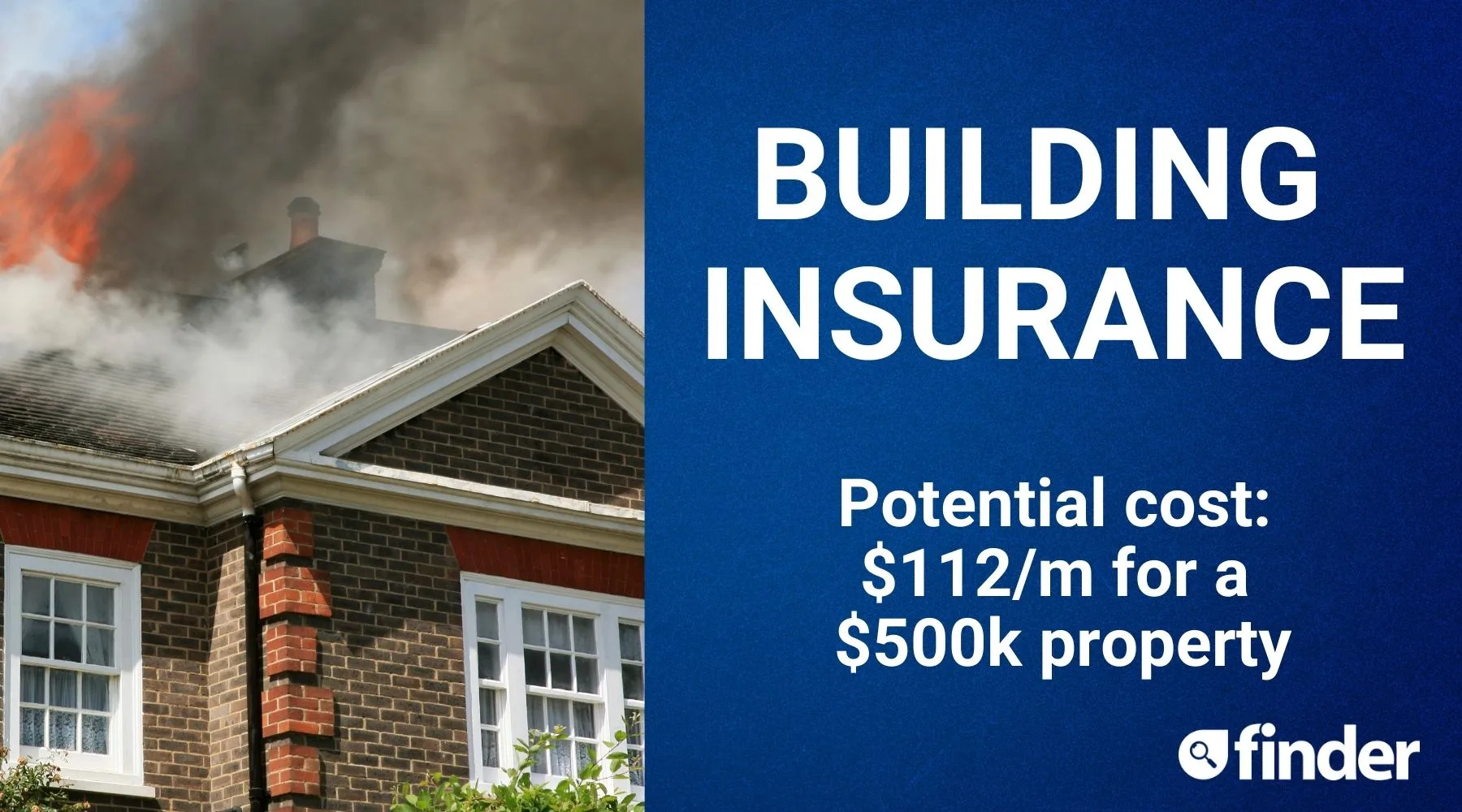
We've all seen the horror stories on the news: the flames, the fires, the distressed owner on the news saying "We just moved in, and we didn't have a chance to get insurance yet..."
It's precisely because of these types of nightmare situations that most lenders will only issue your fully unconditional mortgage once you have an adequate level of building insurance in place.
Some will ask you to set up home insurance that starts on settlement day, or even before. Building insurance protects you from all sorts of risks, like fire, a fallen tree that crashes through your window, a heavy storm that wreaks chaos, or even if someone breaks in and steals all your belongings.
Keep in mind that if you buy a unit or apartment, you won't have to pay this premium. Instead, you'll contribute towards strata insurance across the whole complex, which will include building insurance protection across the board.
- SPEND: Around $112 a month for a $500,000 property, though prices vary depending on the size, age and location of your property.
- READ: Our beginner's guide to getting the right home insurance for your new home.
6. Contents insurance

This is separate to your building insurance, but it's just as important.
It covers the "contents" of your home like curtains and carpets, which are expensive to replace if something goes wrong.
And contents insurance can also help you replace your laptop, TV or furniture from things like fires, theft and accidental damage.
- SPEND: As little as $23 a month, according to Finder research, but it does depend on the value of contents insured.
- READ: Our wrap-up of contents insurance and what protection it offers you.
7. Government loan fees
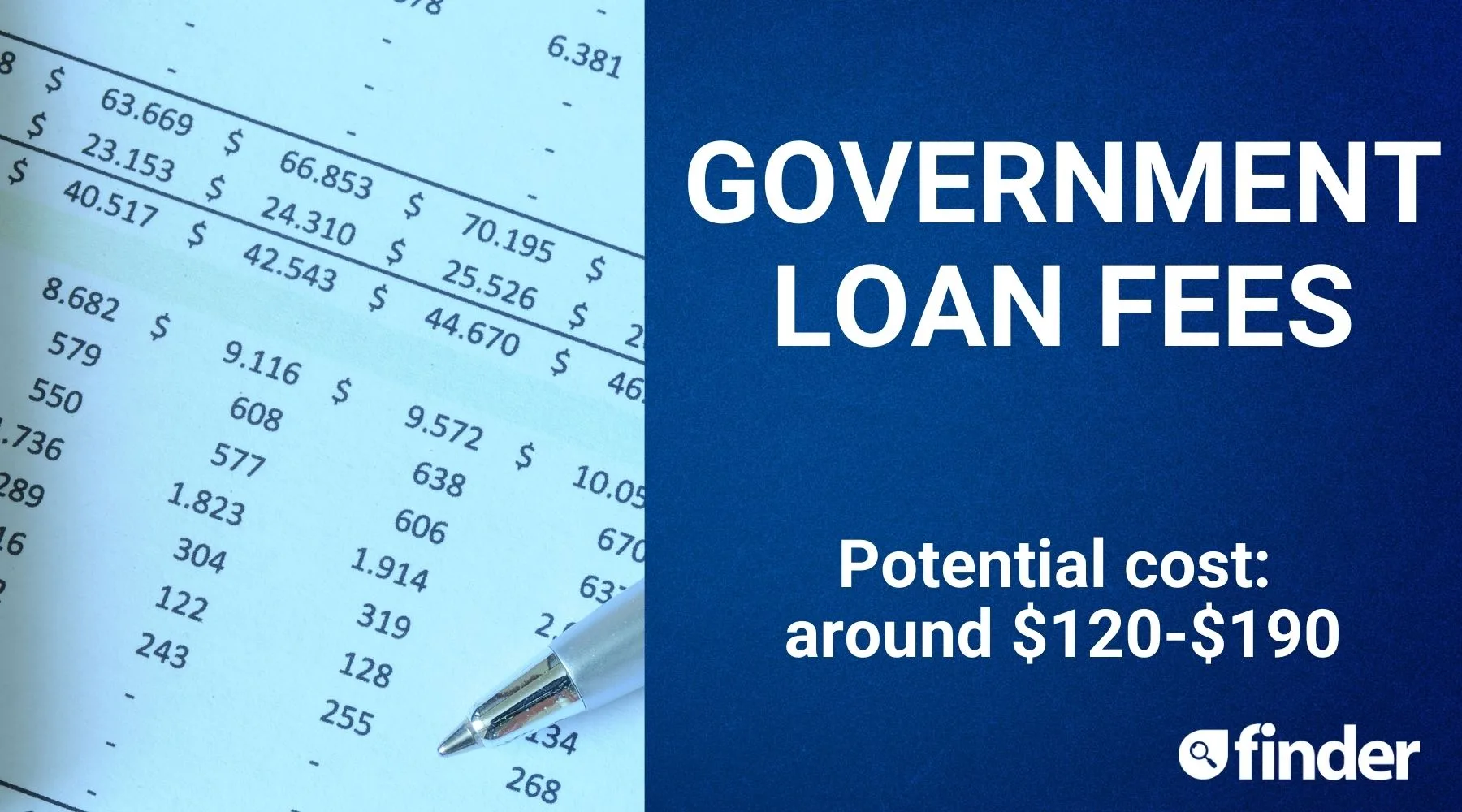
These pesky little fees include things like mortgage registration fees. You can't avoid paying them, and no-one really knows what they're for.
This one, for instance, is a fee you pay to cover the government's time and effort to register the physical property as the security on a home loan. Expect to get very little change from $200.
- SPEND: Around $120-190, depending on your state or territory; your conveyancer will arrange payment on settlement day.
- READ: A summary of the costs of buying a home.
8. Bank fees
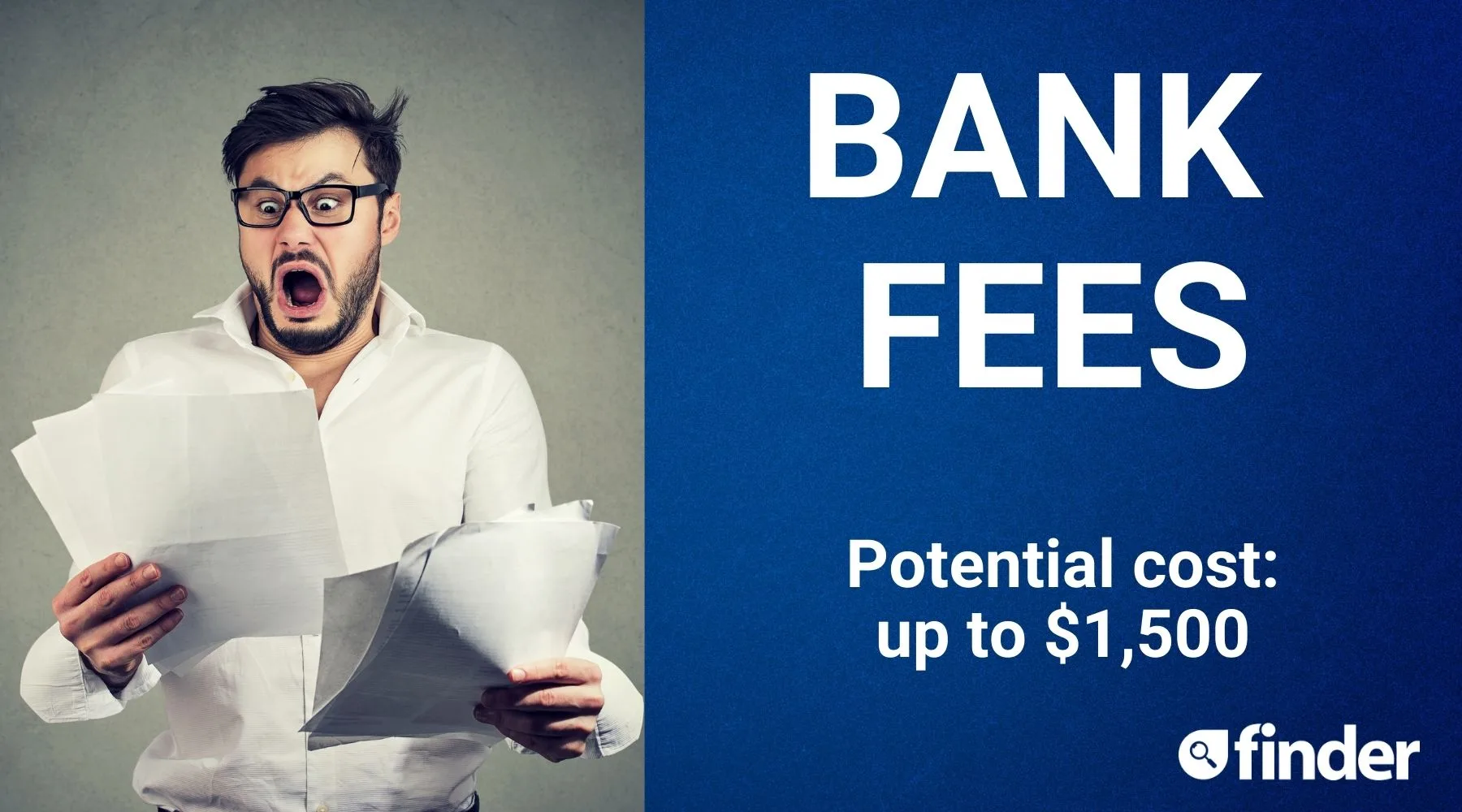
Not to be outdone on the "mysterious but mandatory fees" front, your bank may also charge a range of fees.
These can include, but are not limited to:
- Application fee – they're pretty standard, but not all lenders charge them.
- Loan settlement fee – a charge to settle your paperwork or something?
- Lender's legal fees – yep, some lenders will charge YOU for the legal fees they rack up on their side to arrange your loan.
- Professional package or home loan package fee – usually around $400 a year, but it comes with loads of discounts and extras, like a fee-free credit card.
Additional valuation fees may also apply if you need to value more than one property.
- SPEND: Anywhere from zero to $1,500. Your lender has to tell you about all the potential fees upfront, and many banks will waive certain charges during special promotions. It never hurts to ask for a discount or waiver!
- READ: Our guide to home loan packages, to see what kind of value they offer.
9. Valuation expenses
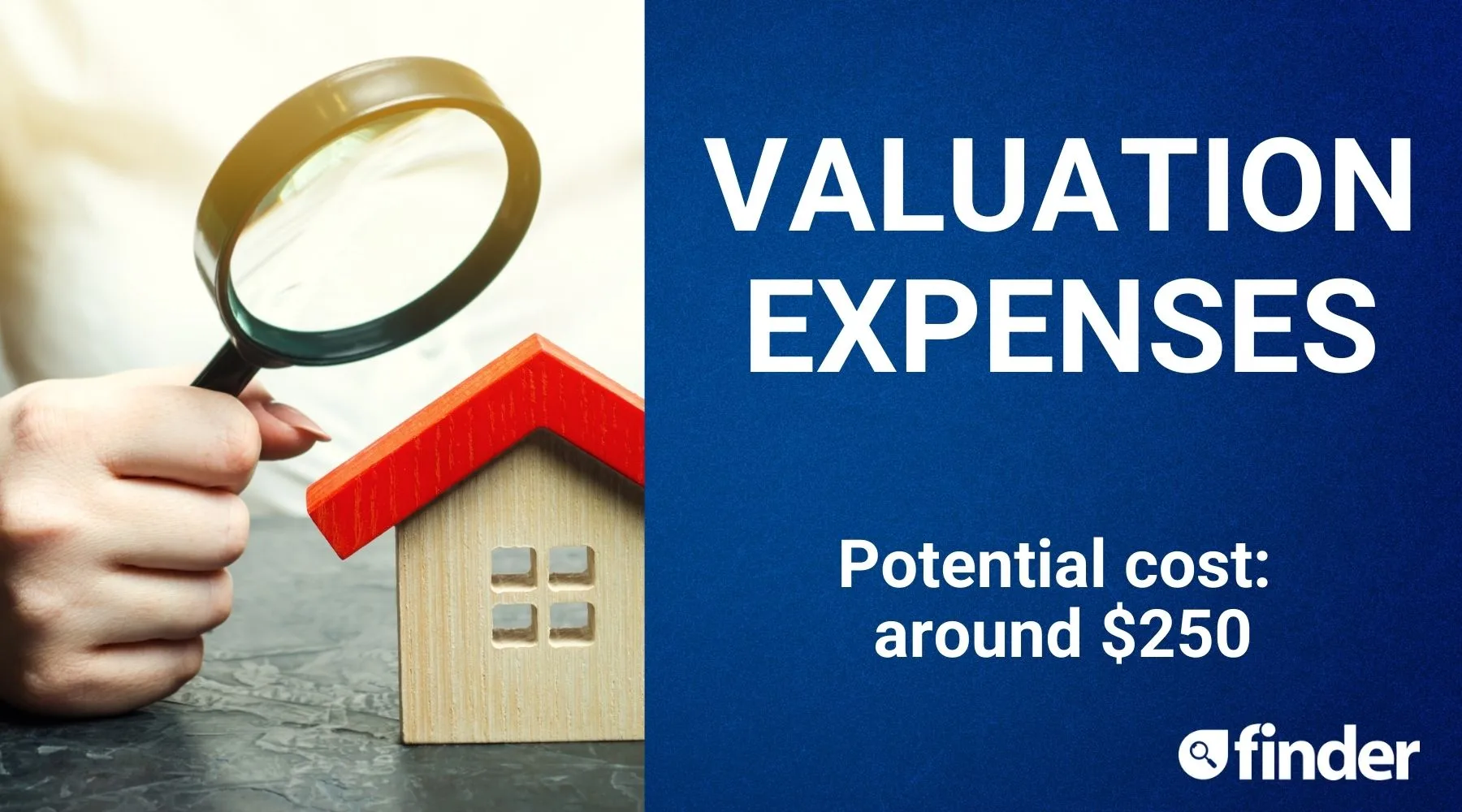
In reality, a property is worth what someone will pay for it. But property investment adviser Michael Yardney, founder and CEO of Metropole Property Strategists, says lenders need a more concrete measure of a home's value before they'll lend you money for it.
So, when you buy a home, the bank will order a property valuation. They usually cost around $200-$250.
"It serves as a 'risk report' to ensure the security value of the property covers the loan," Yardney says.
"A property valuation is defined as the estimated sale price between a willing buyer and a willing seller, in an arm's length transaction, after proper marketing and where the parties had each acted knowledgeably, prudently and without compulsion."
- SPEND: Around $250. Some lenders will cover the cost of the valuation for you, and if they don't, it's always worth asking the question.
- READ: A guide to property valuations and which lenders don't charge for them.
10. Lenders Mortgage Insurance (LMI)
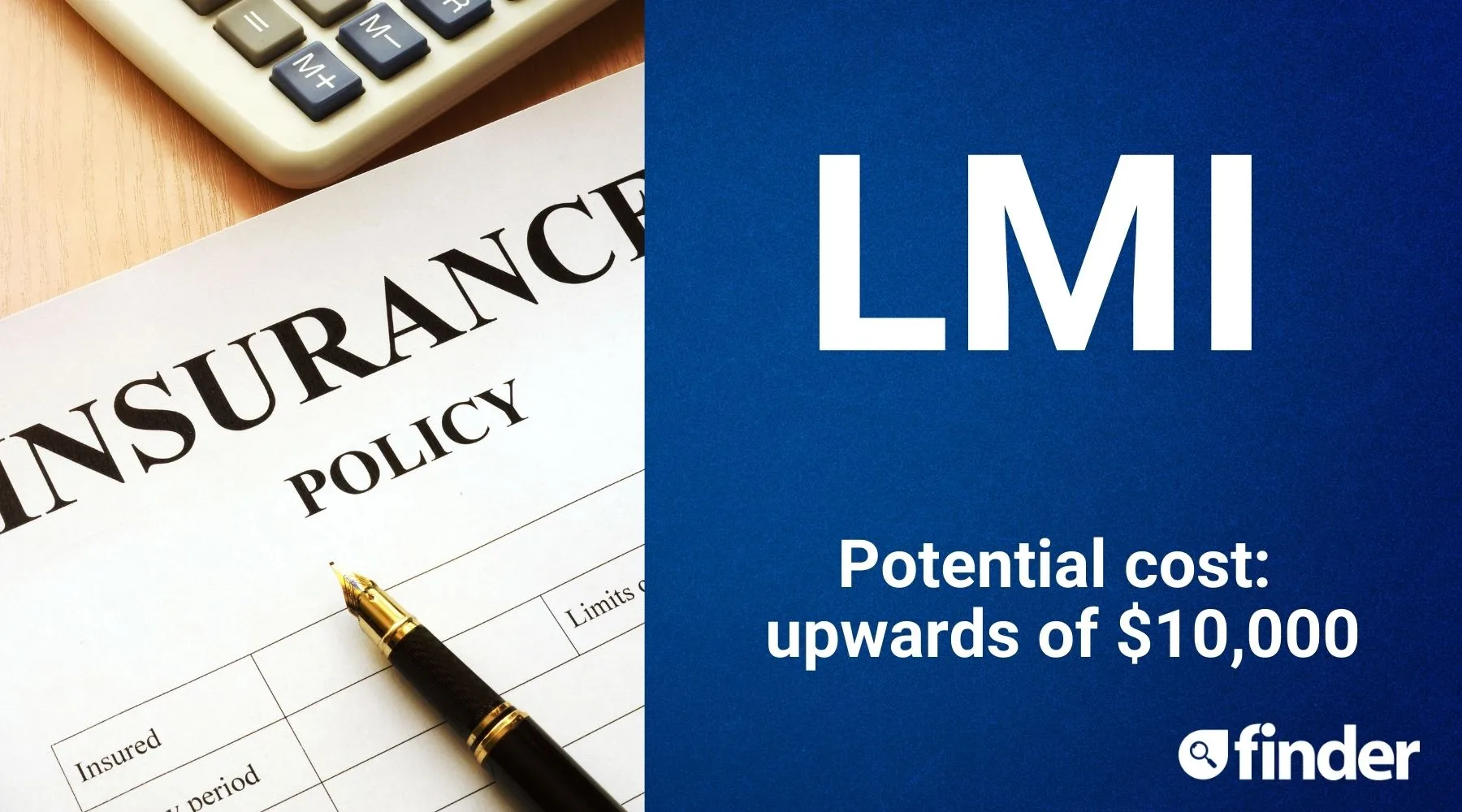
LMI can help you buy a property sooner, because it allows you to borrow more than the standard 80% loan to value ratio.
It's insurance that protects your lender (not you) in the event you can't make your mortgage repayments, Yardney explains.
"With the ability to pass on shortfall risk to the insurance company, lenders are more willing to accept a lower deposit from you. It's payable by you and calculated on a percentage of the purchase price," he says. "The good news is that you can usually borrow the money to pay the LMI upfront, and for property investors this is usually a tax deduction over a 5-year period."
Using LMI could help you get a loan up to 90% Loan to Value ratio (LVR), but your premium gets more expensive as your LVR gets higher (in other words you provide a smaller deposit).
- SPEND: Varies, but can be upwards of $10,000. But first home buyers, take note: You might be able to avoid it altogether with the First Home Loan Deposit Scheme. What a win!
- READ: Our full guide to LMI, including cost estimates.
Ask a question
